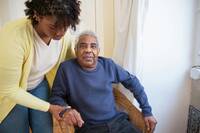Aging, Nursing, Nursing Homes / 16.10.2024
Hiring an Elder Care Nurse
Seniors typically need greater help as they age; the difference is primarily in having the correct person at their side. Selecting the appropriate aged care nurse can help guarantee comfort, safety, and good quality of life whether you are thinking about live-in care for seniors. These useful pointers should assist in directing your decision-making process for the best live in care for seniors.
- Experience








